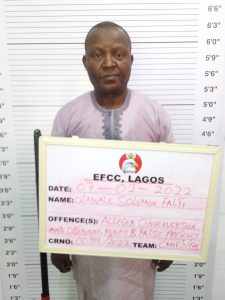
It is counterproductive to adopt overly simplistic narratives about the multiple, complex, overlapping security challenges in Nigeria, United States Congresswoman Sara Jacobs told lawmakers in Washington, DC, yesterday.
She was addressing the Congress on the alleged Christian-targeted killings and President Donald Trump’s Country of Particular Concerns (CPC) classification.
Nigeria was first designated a CPC in 2020 during Trump’s first term.
His successor, President Joe Biden, removed Nigeria from that list shortly after assuming office.
Trump returned Nigeria to the list last month and took it further by threatening military action.
According to him, the Nigerian delegation raised concerns about security assistance, counterterrorism operations, and protection of vulnerable communities.
With the NSA to argue the Nigerian position are top security and policy figures, including Minister of State for Foreign Affairs, Mrs. Bianca Odimegwu-Ojukwu; Inspector-General of Police (IG) Kayode Egbetokun; Minister of Justice and Attorney-General of the Federation, Lateef Fagbemi (SAN); Chief of Defence Staff, Gen. Olufemi Oluyede; Chief of Defence Intelligence, Lt.-Gen. E.A.P. Undiandeye and senior diplomats and advisers from the Office of the National Security Adviser (ONSA) and the Nigerian Embassy in the U.S.
Jacobs, a Democrat representing California’s 51st Congressional District, faulted Trump’s threat of unilateral military action in Nigeria over alleged Christian genocide, describing the rhetoric as “reckless” and potentially dangerous for communities already facing widespread insecurity.
The ranking member of the House Subcommittee on Africa argued that portraying Nigeria’s complex violence as a strictly religious conflict distorts reality and fuels tensions.
Recalling her work on counter-Boko Haram strategies during her time at the State Department, Jacobs insisted that both Christian and Muslim communities suffer from insecurity.
She laced her argument with the recent killings and church kidnapping incident in Eruku, Kwara State and the abduction of 25 schoolgirls in Kebbi State as examples of the broad spectrum of victims.




Hello, i believe that i noticed you visited my web site
so i came to return the want?.I’m attempting to to find issues to improve my site!I guess its good enough to use a few of your ideas!!
Your style is unique compared to other folks I have read stuff from.
Thanks for posting when you’ve got the opportunity, Guess I’ll just bookmark
this blog.
ارائه خدمات حرفه ای مخصوص احراز هویت و وریفای صرافی های بایننس و بای بیت و کوین بیس و اوکی ایکس و کراکن با مدارک معتبر توسط شوپی ویژه ایرانیان
تجربه من با گرافیسو عالی بود چون پاسپورتی که گرفتم حتی کد استعلامپذیر داشت. سرویس پاسپورت واقعی کشورهای مختلف علاوه بر طراحی ظاهری معتبر، از لحاظ امنیتی و دادهای هم کاملاً استاندارده. نسخهای که برای فرانسه سفارش دادم قابلیتش دقیقاً مثل نمونه رسمی بود.